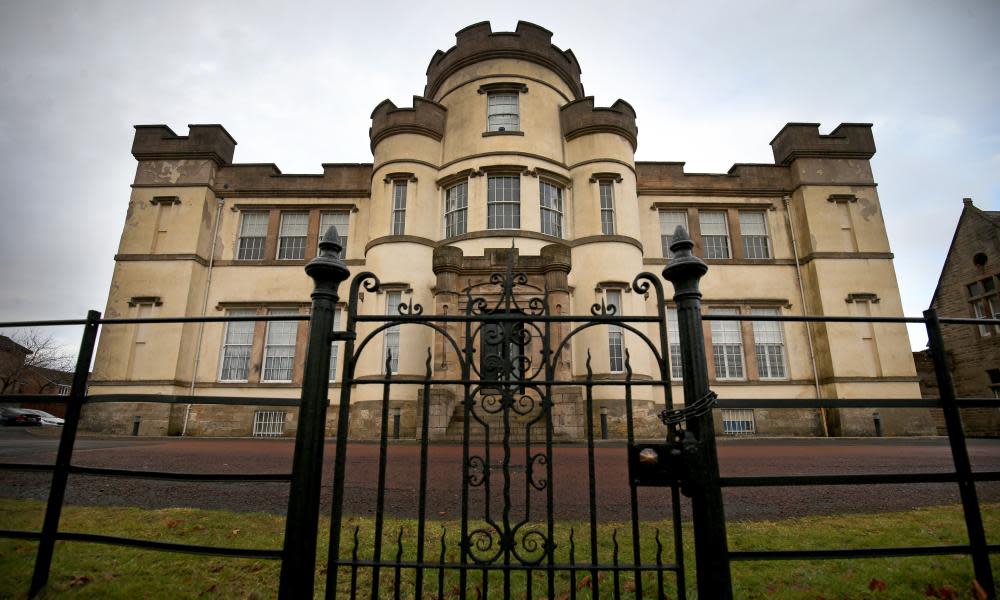Britain's reckoning with past systemic child abuse is long overdue

When the pope said mass in Ireland in 2018, a vast field in Dublin’s Phoenix Park was turned into a grid of “pilgrims’ corrals” to control the expected massive crowds, which never materialised. Out of a dozen people in my section, two nuns talked to me about a priest back home who had abused a young woman.
Another pilgrim, down from Belfast for the occasion, said her aunt had been sent to a religious-run institution as a teenager because she was pregnant. Her son was taken away. On her deathbed, her aunt was still asking the priest for forgiveness.
The pope had come for the World Meeting of Families. During the gathering of Catholic hierarchy and faithful, news broke about nuns arrested in Scotland on charges of abuse at the Smyllum Park orphanage they ran, where hundreds died. The charges resulted from the Scottish child abuse inquiry. The same order, the Daughters of Charity, ran the largest mother-and-baby home in Ireland.
“The institutions were imported from Britain,” the nuns in the corral said. While the Vatican imposed its influence through religious orders, it’s true that Britain laid the foundations for what I call the shame industrial complex, through the workhouse system imposed from the 1700s that punished vulnerable people and separated children from parents.
For the past decade, investigations in Ireland have exposed the legacy of the state-funded, religious-run institutions, from industrial schools to Magdalene laundries. Canada and Australia have confronted a similar past of institutional abuse and forced adoption. Now, as abuse inquiries in England, Scotland, Wales and Northern Ireland are set to issue final reports, a reckoning is overdue in Britain.
In 1999, the Irish state apologised to people abused as children in religious-run institutions, launching a decade-long inquiry. Catholic orders were given indemnity for paying a fraction of compensation, with gag rules imposed on survivors receiving redress. The state has recently attempted to seal child abuse inquiry records for 75 years. But the breaking of silences catalysed change in Ireland and beyond.
Investigations in Ireland also led to one of the UK’s biggest public inquiries. Set up in 2012, the historical institutional abuse inquiry in Northern Ireland found systemic abuse in residential institutions for children operating between 1922 and 1995. This year, after tireless campaigning by survivors, a redress scheme opened up.
In 2015, the independent inquiry into child abuse covering England and Wales was set up. While Boris Johnson claims money is “spaffed up the wall” investigating historical child abuse, an “epidemic” is being uncovered, with thousands of allegations leading to convictions. The inquiry’s truth project has heard from 5,000 survivors.
Systemic abuse impacts generations. I spent the past few years, while working on a book, speaking with survivors of Ireland’s institutions. Mixed-race and disabled children were sent to “reject wards”. Mothers were called “offenders” and forced to do penance. Thousands of children branded “illegitimate” died at shocking rates in these institutions, disappearing into unmarked graves. Mothers are still searching for where their babies were buried. Millennials my age were born in these “homes”, the last operating until 2006.
The final report of the commission of investigation into mother and baby homes in Ireland is due next month, with new legislation proposed to preserve records it gathered and a database of women and their children that could help people trace each other. Survivors face barriers to information, even about their own identity.
The commission was set up five years ago, after a local historian discovered hundreds of children had died at one institution, where infant remains were found in sewage chambers.
The Sisters of the Sacred Hearts of Jesus and Mary, based in England, set up mother-and-baby homes in Britain and Ireland. The commission described its affidavit on the burials of thousands of children who died in its Irish institutions as “misleading”. Religious sisters who ran these institutions are still alive.
A culture of secrecy endures. Avoiding liability is prioritised over transparency. Last year, the pope’s representative in Britain even refused to give evidence to the child abuse inquiry there.
In 2016, the British government rejected demands for a public inquiry into the forced adoption of potentially thousands of children through mother-and-baby homes run by the Catholic church, the Church of England and the Salvation Army. The same year, an inter-departmental working group was established by Stormont to investigate mother-and-baby homes, Magdalene laundries and clerical abuse in Northern Ireland, including cross-border trafficking of children. People born in the Marianvale mother-and-baby home in Northern Ireland were sent over the border and illegally adopted.
Eunan Duffy, a Marianvale survivor campaigning for a full statutory investigation, called the working group a “farce”. Amnesty International denounced it as “shambolic”, having delayed meeting victims and being without a chair since 2018 until a former police officer took over this year. The final report, promised last year, is yet to be released. “They will delay and deny,” Duffy says. He believes survivors should have more say in these inquiries.
Though investigations are flawed, that is no excuse to look away. Systemic change requires transitional justice. Christine Buckley, a survivor who exposed abuse in Ireland’s institutions, spoke out in the hope that her children’s generation would never allow it to happen again. Without accountability for “historical” abuse, why would any institution expect to be held to account for how they treat the most vulnerable today?
Caelainn Hogan is an Irish journalist and author

 Yahoo News
Yahoo News 
